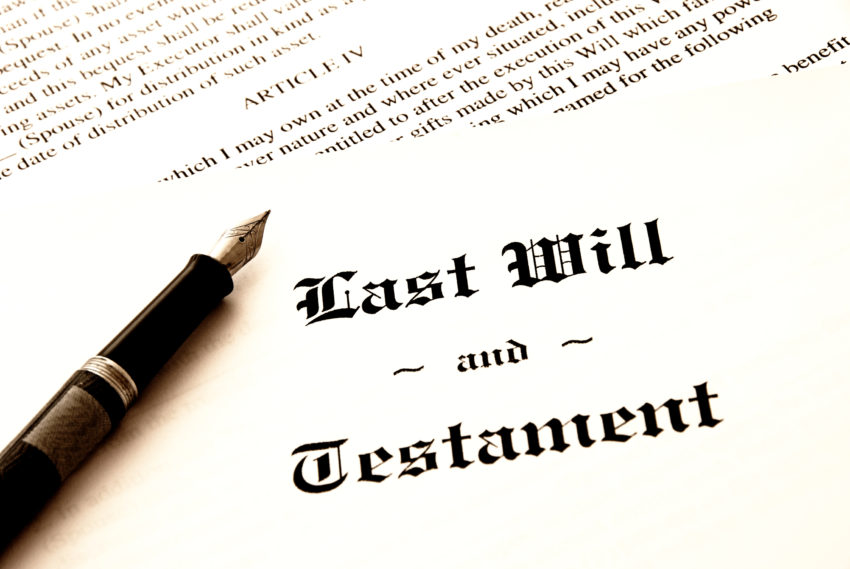When I meet new clients, one of the very first important tasks that I undertake is to educate them about Estate Planning. I believe that it is important to understand what certain terms mean as well as understand the differences between different types of Estate Planning. What I will focus on in this article is Estate Planning through a Last Will and Testament.
What is a Last Will and Testament? A Last Will and Testament very simply is an executed document which explains and outlines your final wishes. A couple of the important components of planning through a Last Will and Testament include appointing your Personal Representatives (primary and successor) and deciding who your beneficiaries will be.
One of the basic components of a Last Will and Testament include appointing and naming Personal Representatives. Traditionally, the office of Personal Representative has been called Executor. The terms are interchangeable. A Personal Representative is the Agent that you appoint to administer your Estate through the Probate Process when you pass away. It is important to appoint a primary agent here, but also successor agents that could step in and fulfill this role if the primary agent cannot or will not. There are many considerations to think about when making the decision about who you will appoint to fulfill this role. One of the common mistakes is to name someone because you do no want to hurt their feelings. This is an important role and carries a lot of responsibility. You should carefully consider this decision because the person or people who actually carry out the responsibilities of this role need to have the ability to manage such a task.
Another of the important components of planning through a Last Will and Testament is deciding who your beneficiaries will be. There are different ways of distributing assets to beneficiaries. You may list a specific distribution. This means that you have a specific item that you want to be distributed to a specific individual. These are typically listed first in the order of distributions. One of the extremely flexible ways that I allow for clients to list these items is in a Personal Property memorandum. This is considerably more efficient and flexible for my clients. This allows for them, at their leisure and over time, to list on the Memorandum any specific distributions that they want. The Memorandum is available as an incorporated part of the Last Will and Testament and may or may not be used. Some people may have many specific distributions. Some may have just a few. Others may not even use it.
Another way of distributing assets is through the Residuary Estate. This means that after all specific distributions are distributed to the named beneficiaries, then the rest, or remainder of the Estate is then assessed and this portion is called the Residuary Estate. If you are married, then you may wish for this to go all to your spouse. If your spouse has predeceased you, then you may wish to divide the Residuary Estate into equal or unequal shares for what I call final beneficiaries. These may be your children or grandchildren. They may be other relatives or friends. You may choose to name organizations such as your church or an educational institution. You will need to decide if the beneficiary is to receive a certain percentage or fraction of the Residuary Estate or if they are to receive a dollar amount. Unless you have a specific reason for leaving a certain dollar amount to a beneficiary, then my recommendation is to leave a percentage. Percentages are always attainable. Dollar amounts are sometimes not available and this will require more language to clarify what the Personal Representative is to do if you have less than the dollar amount in the Estate to distribute to the beneficiary.
You will want to decide how the distribution is to be distributed to the beneficiary. You can leave the distribution outright. You can leave it in trust for the beneficiary. This method is particularly useful and helpful for underage beneficiaries or special needs beneficiaries. You may want to consider this option if the beneficiary you select has difficulty managing their own affairs.
There are many more factors to think about when deciding on your beneficiaries as well as other components to planning through a Last Will and Testament, but I have named and explained a few of those components to consider. You should consult with a knowledgeable and competent Estate Planning attorney for more information and advise on these decisions. BASED ON FAITH.
